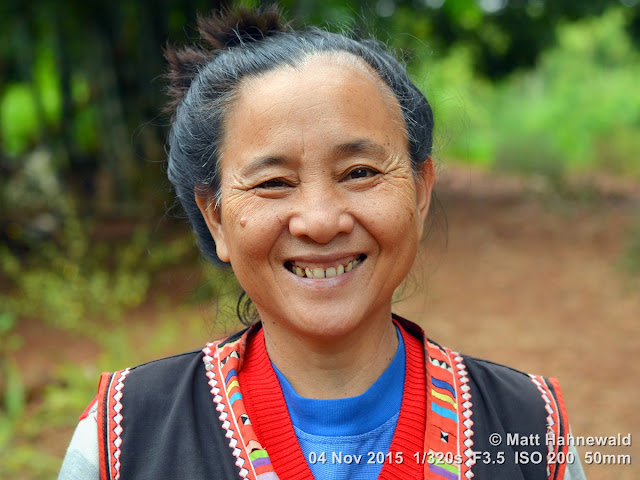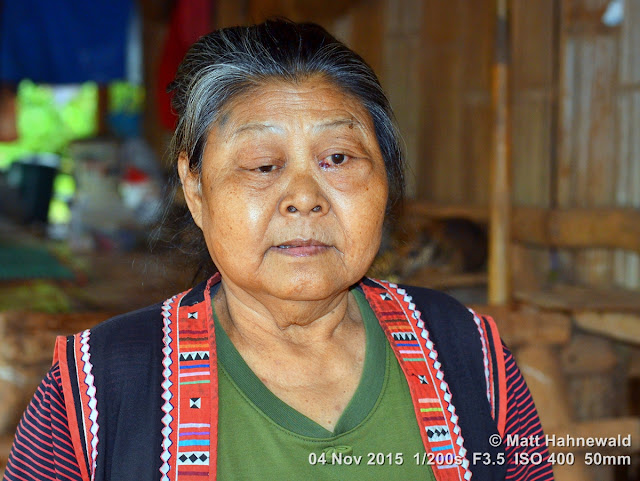Hilltribe is
a term used in Thailand for the various ethnic groups who mostly
inhabit the mountainous regions of Northern and Western Thailand,
including both sides of the border areas between Northern Thailand, Laos and
Burma. These areas are known for their often mountainous terrain which is in
some areas covered by thick forests, while in others it has been heavily
affected by deforestation.
The Big Ear Kayor or Kayaw is a sub-group of the Red Karen
aka Karenni people, a Tibeto-Burman ethnic minority of Burma aka Myanmar. Instead of the
Padaung tribe's brass neck coils, the women of the Kayor aka Kayaw tribe wear colourful
beaded necklaces with pendants and large ear gauges (amber stones, silver and
other metal cylinders) in their elongated earlobes. The Big Ear Kayor aka Kayaw have their own language and
traditions.
The Lahu
people are a large ethnic group in China and Southeast Asia. In Thailand, the Lahu
are one of the six main groups categorised as hilltribes (Akha, Karen,
H'mong/Miao, Yao/Mien, Lisu, and Lahu/Musoe). The Thai often refer to them by
the exonym Musoe ("the hunters").
The Lahu are a strong and independent ethnic group who number c. 60,000 in Thailand. They are located primarily in the Chiang Mai and Chiang Rai provinces and their settlements are usually remote from roads and towns, due to their strong commitment to the maintenance of the Lahu way of life. Although primarily subsistence farmers, growing rice and corn for their own consumption, the Lahu are also proud of their hunter-warrior heritage. They remain a strict and serious people governed by strong principles of right and wrong.
A few Lahu, along with H'mong/Miao, Lao, and Yao/Mien were recruited by the United States' CIA to help in the fight against the communist Pathet Lao, known as the secret war, during the Laotian Civil War. In fear of retribution when the Pathet Lao took over the Laotian government in 1975 CE, those who had helped the United States fled to neighbouring Thailand seeking political asylum.
The Lahu are a strong and independent ethnic group who number c. 60,000 in Thailand. They are located primarily in the Chiang Mai and Chiang Rai provinces and their settlements are usually remote from roads and towns, due to their strong commitment to the maintenance of the Lahu way of life. Although primarily subsistence farmers, growing rice and corn for their own consumption, the Lahu are also proud of their hunter-warrior heritage. They remain a strict and serious people governed by strong principles of right and wrong.
A few Lahu, along with H'mong/Miao, Lao, and Yao/Mien were recruited by the United States' CIA to help in the fight against the communist Pathet Lao, known as the secret war, during the Laotian Civil War. In fear of retribution when the Pathet Lao took over the Laotian government in 1975 CE, those who had helped the United States fled to neighbouring Thailand seeking political asylum.
In
the past, the Lahu people weaved their own clothes. But nowadays, weaving is
mostly only used for colourful accessories (e.g. the famous Lahu shoulder bag) and ornaments.
High-res portrait photographs with full exif data, precise geotags and technical details in Matt Hahnewald's








No comments:
Post a Comment